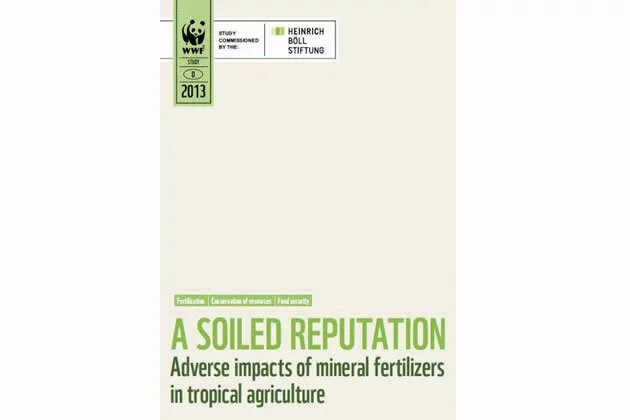
Foreword
With food prices high and nearly a billion people going hungry, calls are getting louder for big, rapid increases in food production through agricultural intensification. And what better way to grow more food than by adding fertilizer?
Especially in Africa, where yields are low and the demand for food is high? The African Development Bank regards higher fertilization as one of the most promising ways to boost agricultural production and achieve food security.
The Bank even talks of a “fertilizer crisis” in the continent, and calls on national governments to take immediate measures to overcome it. The “African Fertilizer Financing Mechanism”, based at the Bank since 2007, encourages and supports the production and distribution of fertilizer.
But the idea that more fertilizer will produce higher yields is far too simplistic. On the contrary: industrial agricultural production is a major cause of lower soil fertility and rising soil degradation worldwide. The improper and disproportionate use of chemical fertilizers drives this trend. This study opposes the Bank’s recommendations and offers a critical analysis of fertilizer subsidies. Instead, it focuses on various aspects of soil fertility. This is because the nature of soils in the tropics and subtropics present enormous challenges that must be faced when including fertilizer in a comprehensive soil management strategy. That is the only way to improve soil fertility and, ultimately, to rise yields.
Fertile soils are among our most important resources worldwide. Healthy soils store water, are home to a large share of biodiversity, and store carbon. Fertilizer subsidy programmes ignore the challenges and potentials of agriculture that conserves the resources on which it depends. Only healthy soils will be able to meet the food requirements of nine billion people in the future.
Berlin, April 2013
Christine Chemnitz (Heinrich Böll Foundation)
Birgit Wilhelm (WWF Germany)
Matthias Meißner (WWF Germany)
Download PDF - A soiled reputation. Adverse impacts of mineral fertilizers in tropical agriculture